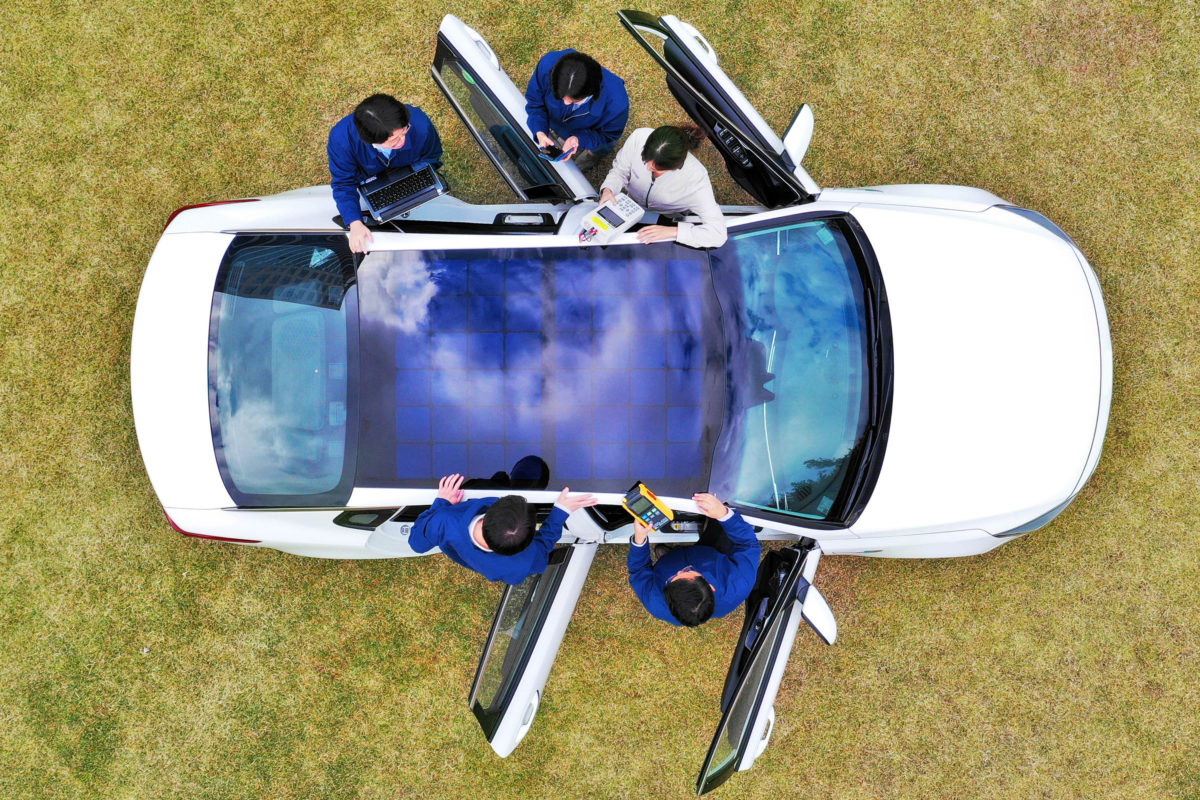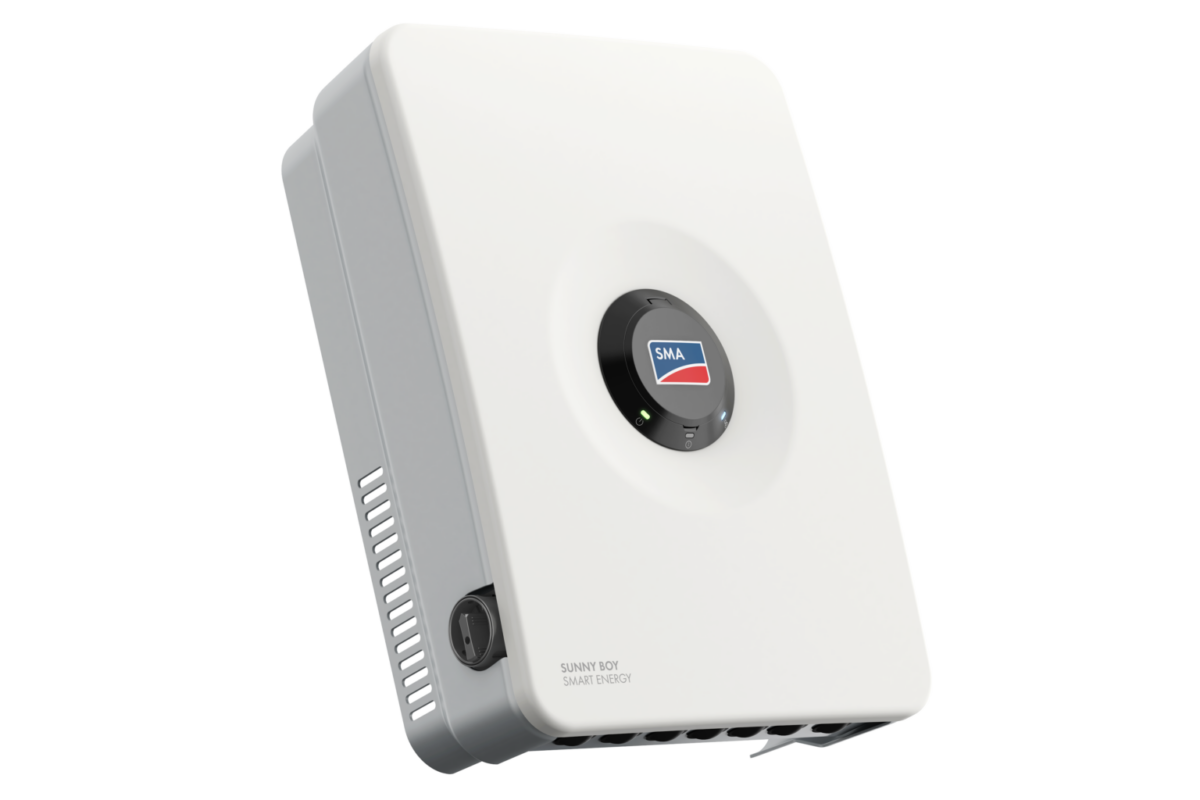Hyundai Motors and Kia Motors disclosed joint plans to apply solar charging systems to be integrated into selected Hyundai vehicles. According to the announcement, the developers are working to install solar roofs and bonnets on the cars which would support EV & hybrid battery charging. Additionally, the technology could also be applied to internal combustion engine models, to improve fuel efficiency.
There are three different solar charging systems in development, Hyundai Motor Group says. The first generation comprises a silicon solar roof system, the second-generation will be a semi-transparent panoramic roof, with solar PV generation capability, and in the third generation, the company works towards installing a lightweight ‘solar-lid’ onto the vehicle’s body.
In the first phase of the project, regular mass-produced silicon solar modules will be mounted onto a hybrid model’s roof. According to the car manufacturer, the system could provide a 30 to 60% charge for the batteries per day, depending on irradiation levels.
The semi-transparent panoramic roof will be applied to vehicles with an internal combustion engine (ICE) for the first time in the world, as the manufacturer touts. The window could charge either EV batteries or a battery to work alongside the ICE. Reportedly, the latter would improve the vehicles fuel efficiency, future proofing it for tighter environmental regulations that are expected to come in many markets.
Furthermore, a lightweight ‘solar-lid’ system is currently in the pilot phase of development. Thereby solar modules would be integrated onto the cars body structure on the roof and bonnet, for additional energy output. To increase the efficiency of the charging system, modules are equipped with maximum power point tracking (MPPT) optimizing voltage and current.
“In the future, various types of electricity generating technologies, including the solar charging system, will be connected to vehicles. This will enable them to develop from a passive device that consumes energy to a solution that actively generates energy,” said Jeong-Gil Park, Executive Vice President of Engineering Design Division of Hyundai Motor Group., who has developed this technology. “The paradigm of the vehicle owner will shift from that of a consumer to an energy prosumer.”
The first generation solar roofing, will be available in selected Hyundai vehicles after 2019 the manufacturer states. In February 2017, Toyota was the first to offer solar panel roof options for hybrid Prius models, while Fraunhofer ISE announced in April of that year to integrate solar panels to commercial vehicles to provide charge for refrigeration for example.
This content is protected by copyright and may not be reused. If you want to cooperate with us and would like to reuse some of our content, please contact: editors@pv-magazine.com.




I have two EV’s, a 2016 e.Golf and a 2018 Leaf. Recently I’ve up-graded an 12 year old solar array to newer panels. Now, what to do with 32 older
panels made in USA by a now defunct company? My ‘problem’ will most certainly be shared by thousands of ‘early adapters’ world-wide.
Leaving aside recycling debates, my question, how can I hook up
some or all of my used panels to my vehicles?
I’m building a shaded parking spot using some of those old panels.
The remainder will power my domestic (conventional) hot water tank with DC power.
Can I use the DC recharging inlets on the e.Golf and Leaf?
As you know these two have different plugs (for rapid charging).
Where can a person obtain such plugs?
As for (automobile) roof top charging. Great for apartment living street parkers. I expect PV footprints to grow smaller every year.
In time, aftermarket PV’s should offer some security lower cost EV’s
w/ smaller battery reserves.
EV’s are indeed a ‘disruptive technology’. Just like horseless carriages replaced blacksmiths, mews. Muffler, radiator shops, garages, will transition into makers. installers of solar lids for a person’s personal transport.
Bob Inget
awesome blog. this vehicle will be the smart vehicle for future..